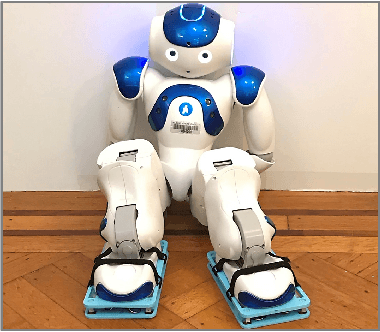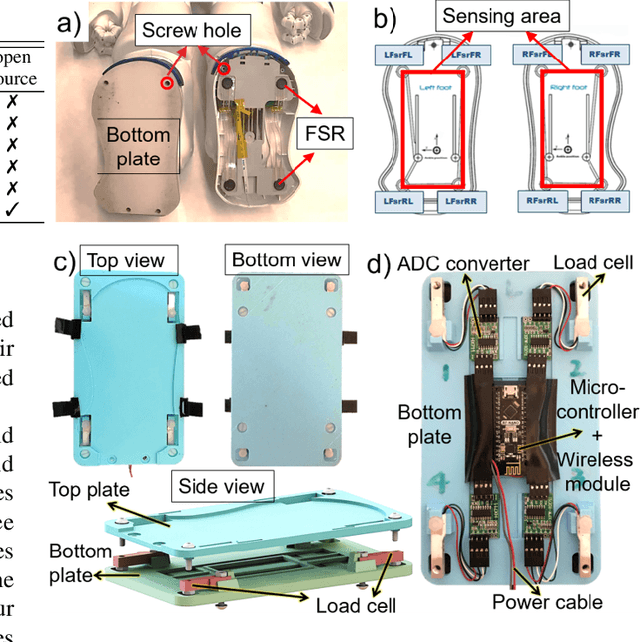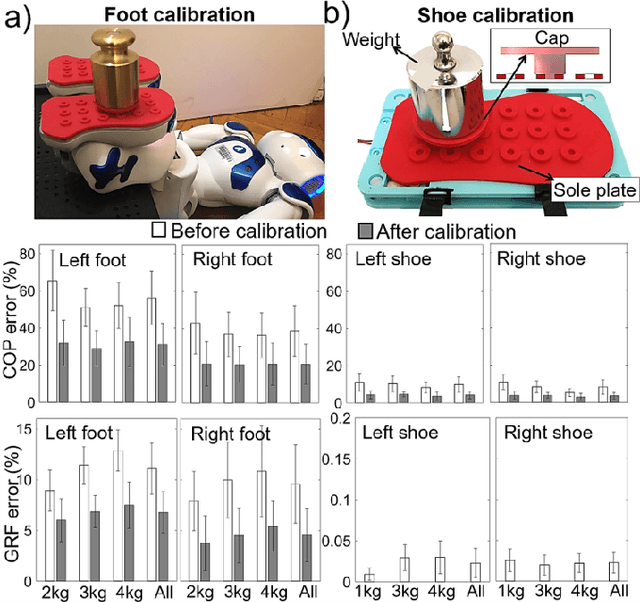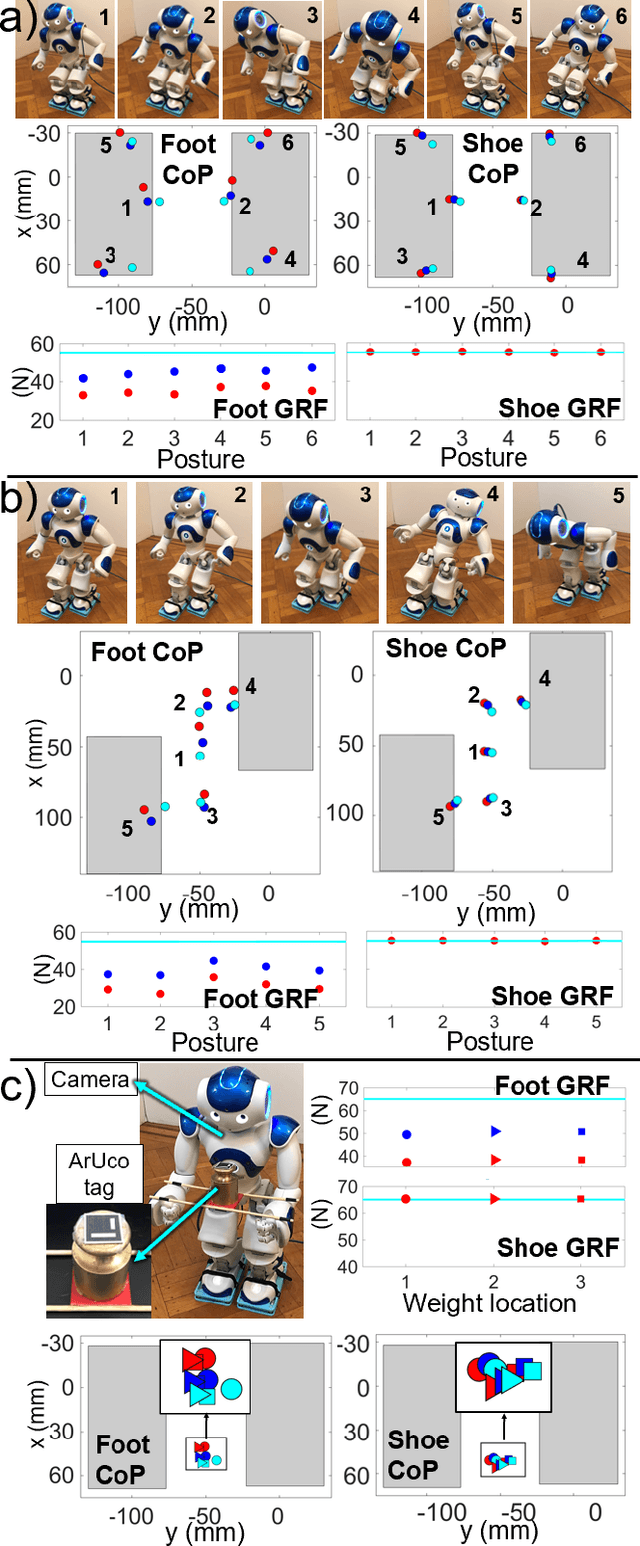Look at my new blue force-sensing shoes!
Paper and Code
Apr 14, 2021



To function autonomously in the physical world, humanoid robots need high-fidelity sensing systems, especially for forces that cannot be easily modeled. Modeling forces in robot feet is particularly challenging due to static indeterminacy, thereby requiring direct sensing. Unfortunately, resolving forces in the feet of some smaller-sized humanoids is limited both by the quality of sensors and the current algorithms used to interpret the data. This paper presents light-weight, low-cost and open-source force-sensing shoes to improve force measurement for popular smaller-sized humanoid robots, and a method for calibrating the shoes. The shoes measure center of pressure (CoP) and normal ground reaction force (GRF). The calibration method enables each individual shoe to reach high measurement precision by applying known forces at different locations of the shoe and using a regularized least squares optimization to interpret sensor outputs. A NAO robot is used as our experimental platform. Experiments are conducted to compare the measurement performance between the shoes and the robot's factory-installed force-sensing resistors (FSRs), and to evaluate the calibration method over these two sensing modules. Experimental results show that the shoes significantly improve CoP and GRF measurement precision compared to the robot's built-in FSRs. Moreover, the developed calibration method improves the measurement performance for both our shoes and the built-in FSRs.
 Add to Chrome
Add to Chrome Add to Firefox
Add to Firefox Add to Edge
Add to Edge